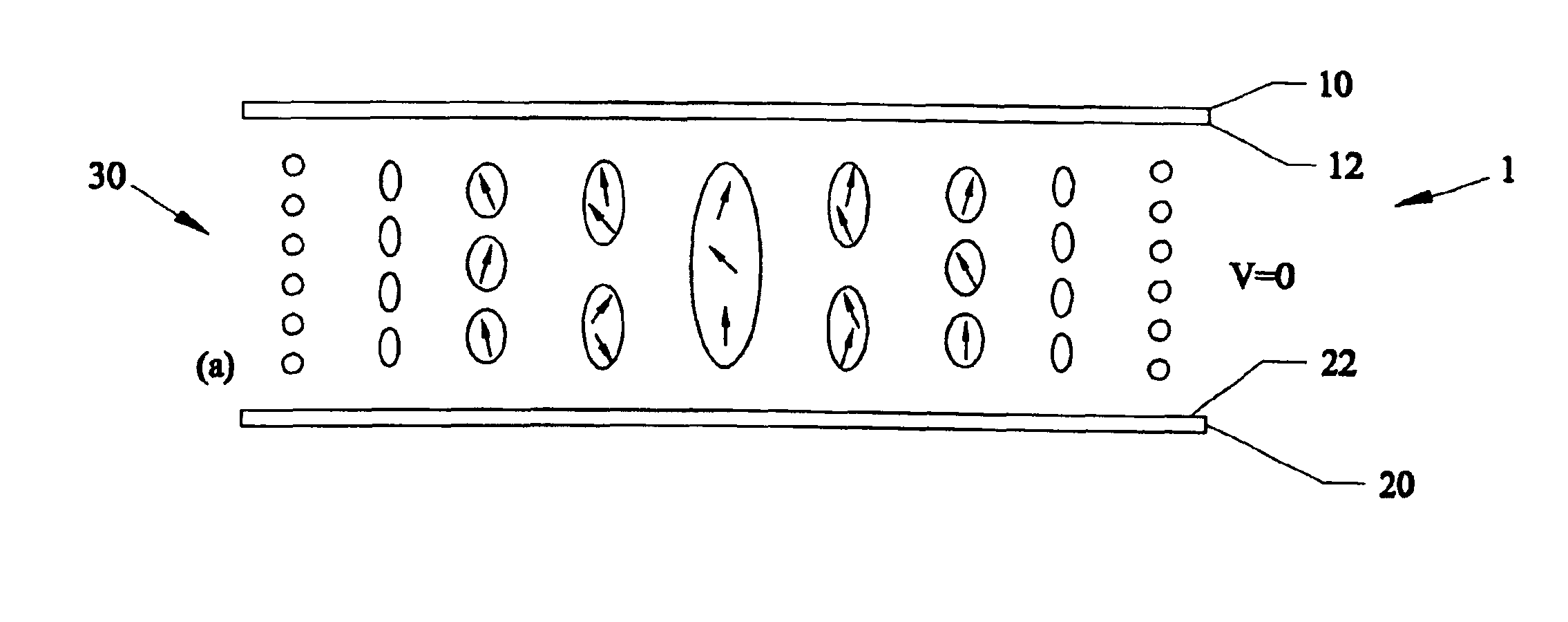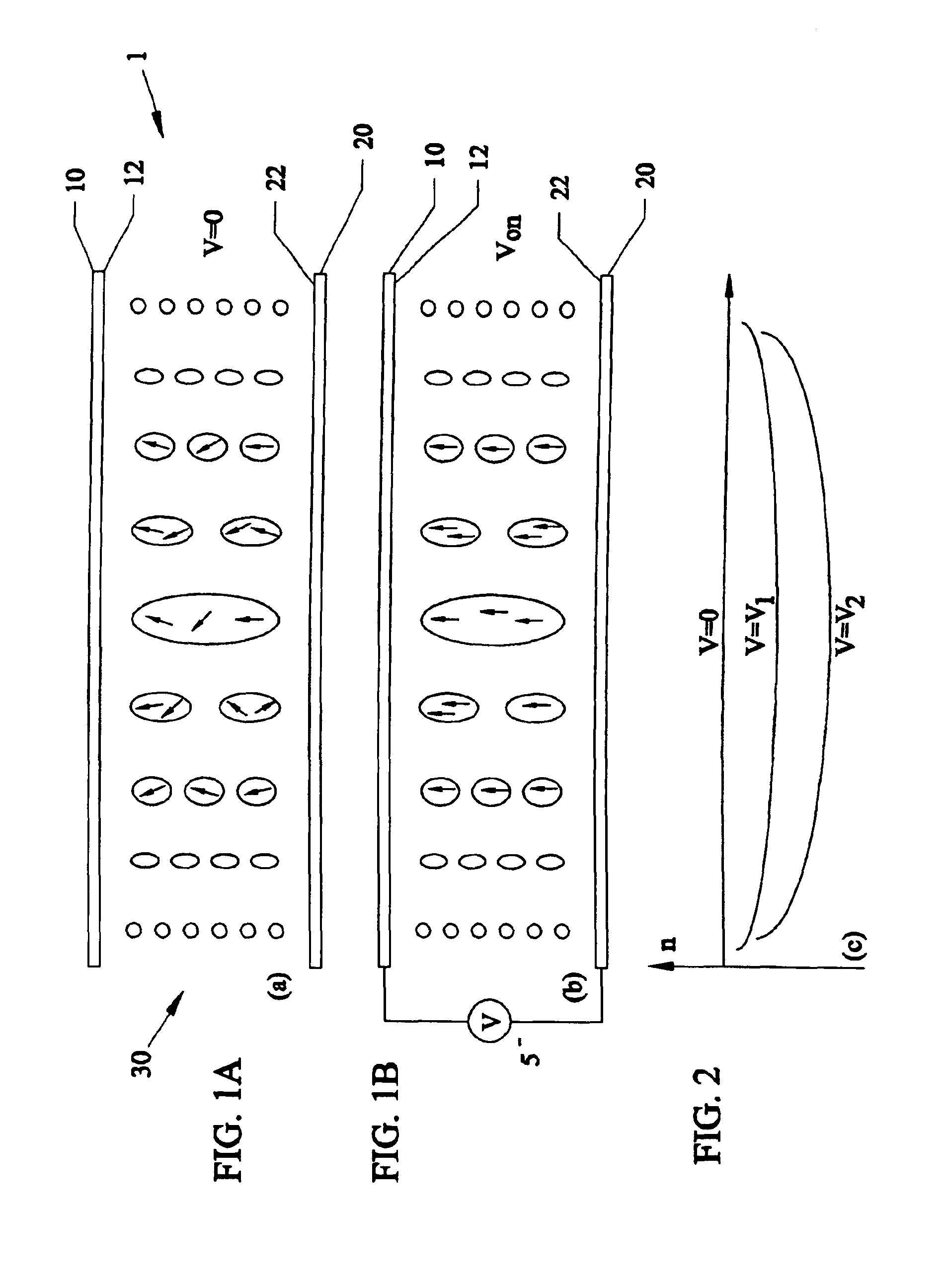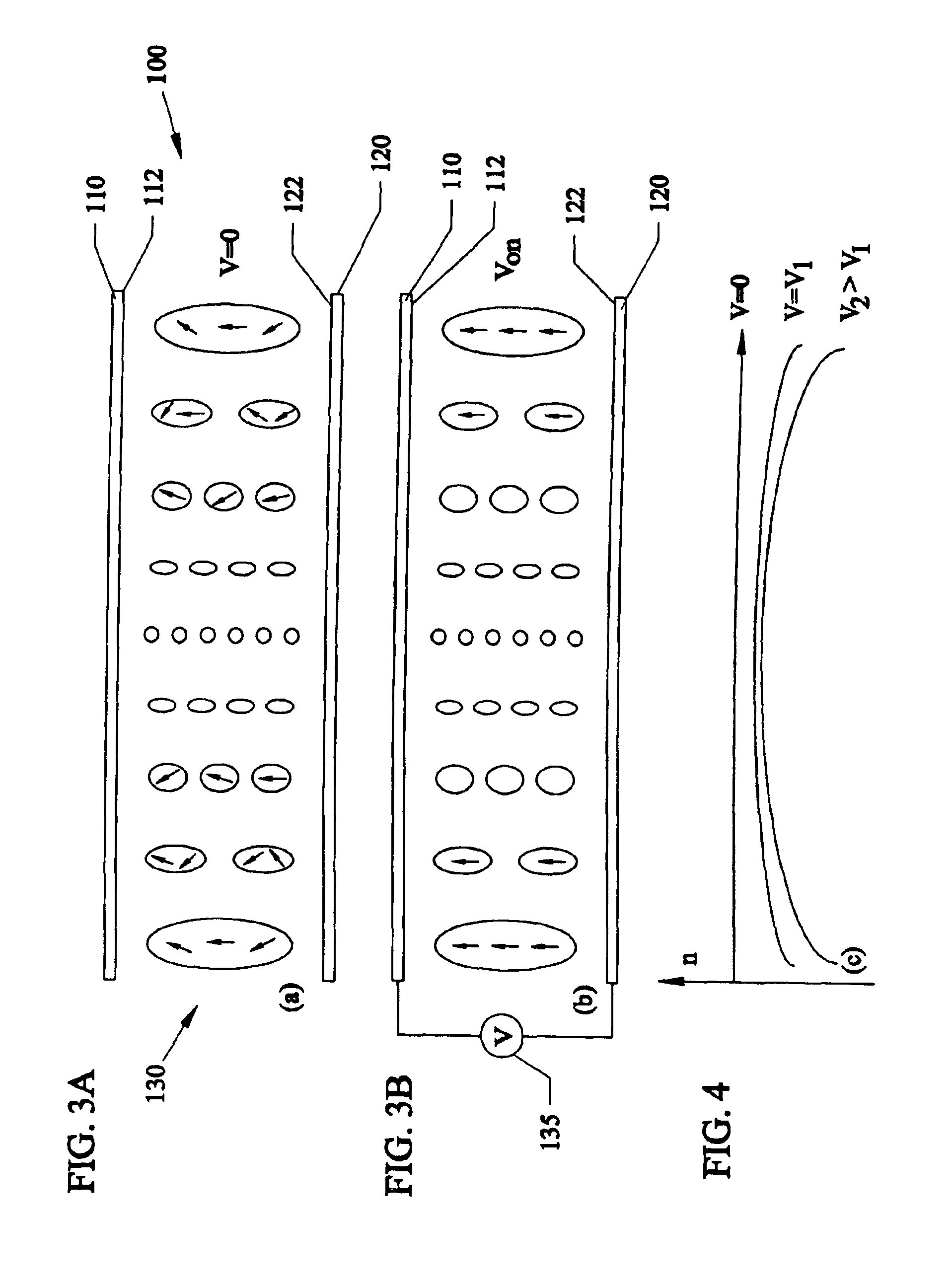Tunable electronic lens and prisms using inhomogeneous nano scale liquid crystal droplets
a technology of electronic lenses and prisms, which is applied in the direction of liquid crystal compositions, instruments, chemistry apparatuses and processes, etc., can solve the problems of using liquid crystals, difficult to align liquid crystal molecules on curved substrates, and limited use of linearized light sources along with other required features
- Summary
- Abstract
- Description
- Claims
- Application Information
AI Technical Summary
Benefits of technology
Problems solved by technology
Method used
Image
Examples
Embodiment Construction
Before explaining the disclosed embodiments of the present invention in detail it is to be understood that the invention is not limited in its application to the details of the particular arrangement shown since the invention is capable of other embodiments. Also, the terminology used herein is for the purpose of description and not of limitation.
The invention consists of using inhomogeneous nano-scale polymer-dispersed liquid crystal(PDLC) droplets that are supported between ITO(indium tin oxide) layers glass substrates, where the droplets are mixed within a polymer matrix and held in position between sandwiched glass or plastic substrates.
FIG. 1A shows a side cross-sectional view of a negative liquid crystal lens using the novel inhomogeneous liquid crystal droplet sizes of the invention with zero voltage applied. FIG. 1B shows the negative liquid crystal lens of FIG. 1A with voltage being applied. The lenses can have various dimensions depending on their application, and can have...
PUM
| Property | Measurement | Unit |
|---|---|---|
| Size | aaaaa | aaaaa |
Abstract
Description
Claims
Application Information
 Login to View More
Login to View More - R&D
- Intellectual Property
- Life Sciences
- Materials
- Tech Scout
- Unparalleled Data Quality
- Higher Quality Content
- 60% Fewer Hallucinations
Browse by: Latest US Patents, China's latest patents, Technical Efficacy Thesaurus, Application Domain, Technology Topic, Popular Technical Reports.
© 2025 PatSnap. All rights reserved.Legal|Privacy policy|Modern Slavery Act Transparency Statement|Sitemap|About US| Contact US: help@patsnap.com



